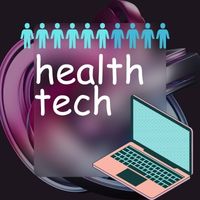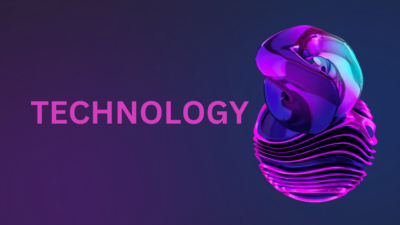Health Technology in our life

Health technology offers a myriad of benefits that profoundly impact individuals’ lives.

“Empowering Wellness: The Impact of Wearable Health Tech on Everyday Life”
Wearable health technology, including smartwatches, fitness trackers, and health monitoring devices, has transformed how individuals manage their health and wellness . These devices track various metrics such as heart rate, sleep quality, activity levels, and stress levels, providing users with valuable insights into their overall health. With features like activity reminders, goal setting, and personalized feedback, wearable devices motivate users to adopt healthier habits and lifestyles. The convenience of having health data readily available on a wristwatch or smartphone encourages users to stay proactive about their wellness, leading to improved physical fitness, better sleep, and reduced stress levels.
“Navigating Health care: How can we use for Reshaping Patient Experiences”
Digital innovations in healthcare, such as telehealth services, mobile health apps, and electronic health records, are revolutionizing the way patients access and interact with healthcare services. Telehealth allows patients to contact with healthcare providers remotely, reducing wait times and eliminating the need for travel. Mobile health apps empower patients to manage their health through features like appointment scheduling, medication reminders, and symptom tracking. Electronic health records streamline communication between healthcare providers and improve care coordination, resulting in better patient outcomes and experiences.
“From Couch to Fit: The Role of Fitness Trackers in Active Lifestyles motivation”
Fitness trackers have become indispensable tools for individuals looking to adopt healthier lifestyles and increase their physical activity levels. These devices monitor metrics such as steps taken, distance traveled, calories burned, and active minutes, providing users with real-time feedback on their exercise habits. With features like goal setting, progress tracking, and social sharing, fitness trackers motivate users to set and achieve fitness goals, leading to improved cardiovascular health, weight management, and overall well-being.
“A Doctor in Your Pocket: Exploring the Convenience of Telehealth Services”
Telehealth services bring the convenience of medical care directly to patients’ smartphones and computers, revolutionizing the healthcare experience. Patients can access various healthcare services remotely through video consultations, phone calls, and secure messaging, including primary care, specialty consultations, mental health counseling, and follow-up visits. Telehealth eliminates barriers to care such as distance, transportation, and time constraints, making healthcare more accessible and convenient for patients of all ages and backgrounds.
“Sleep Smarter, Live Better: Harnessing Technology for Improved Sleep Health”
Technology has become a valuable ally in promoting healthy sleep habits and improving sleep quality. Sleep tracking devices, smart mattresses, and sleep analysis apps monitor factors such as sleep duration, sleep stages, and sleep disturbances, providing users with insights into their sleep patterns. By identifying and addressing issues such as insomnia, sleep apnea, and restless leg syndrome, technology helps individuals achieve better sleep hygiene and overall sleep health, leading to improved cognitive function, mood regulation, and physical well-being.
“Eating Well in the Digital Age: How Mobile Apps Are Revolutionizing Nutrition”
Mobile apps are transforming the way individuals approach nutrition and dietary habits, empowering them to make healthier food choices and achieve their nutritional goals. Nutrition tracking apps, meal planning tools, and recipe databases provide users with information about calorie intake, macronutrient distribution, and nutrient density, helping them build balanced and nutritious meals. With features like barcode scanning, food logging, and personalized recommendations, these apps make it easier for users to adopt sustainable and healthy eating habits, leading to improved energy levels, weight management, and overall health.
“Stress Less, Live More: Managing Mental Wellness with Health Tech Solutions”
Health tech solutions offer innovative ways to manage stress and improve mental wellness in today’s fast-paced world. Mindfulness apps, meditation guides, and stress tracking devices help individuals cultivate mindfulness, relaxation, and resilience in the face of daily stressors. By practicing techniques such as deep breathing, guided meditation, and progressive muscle relaxation, users can reduce stress levels, improve mood, and enhance overall emotional well-being. Integrating mental wellness into daily routines with the help of technology fosters a holistic approach to health, promoting balance, harmony, and vitality.
“Managing Chronic Conditions: The Rise of Remote Patient Monitoring Devices”
Remote patient monitoring devices are revolutionizing the management of chronic health conditions, allowing individuals to monitor their symptoms and vital signs from the comfort of their homes. These devices, which include wearable sensors, home monitoring kits, and mobile health platforms, enable patients to track metrics such as blood pressure, blood glucose levels, and oxygen saturation in real-time. By providing healthcare providers with access to continuous and accurate data, remote patient monitoring improves care coordination, facilitates early intervention, and reduces the need for hospitalizations and emergency room visits among patients with chronic conditions.
“Data-Driving Decisions: Health Analytics for Personal Care”
Health analytics and big data are transforming healthcare delivery by enabling personalized and data-driven decision-making. By analyzing large volumes of health-related data, including electronic health records, genomic information, and wearable device data, healthcare providers can identify patterns, trends, and correlations that inform treatment decisions and interventions. Advanced analytics techniques such as machine learning and predictive modeling help predict patient outcomes, optimize treatment protocols, and tailor interventions to individual patient needs, resulting in improved clinical outcomes, reduced healthcare costs, and enhanced patient satisfaction.
“Aging Gracing: Seniors’ Health and Independence Technologies”
Assistive technologies play a critical role in promoting health and independence among older adults as they age. These technologies, which include smart home devices, wearable safety alarms, medication management systems, and remote monitoring solutions, help seniors maintain their autonomy and quality of life. Smart home devices automate household tasks and provide safety and security features, while wearable alarms offer peace of mind and immediate assistance in case of emergencies. Medication management systems ensure medication
Overall, these advancements in health technology contribute to a healthier, happier, and more connected society.



